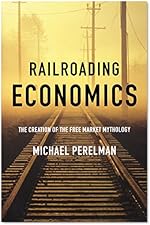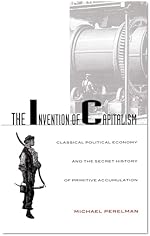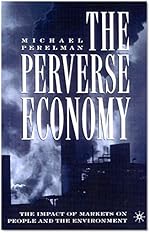Archive for March, 2009|Monthly archive page
The Dithering Society
LBJ gave the US the Great Society. He also gave us Vietnam, but let’s put that aside for the moment. A lot of the Great Society was really meant to co-opt radicalism, but some of what he did looks almost miraculous compared to what we have today. I would suggest we have today is the Dithering Society, except for the rapidity with which the administration responds the unmerited demands of finance.
Obama began with some vague ideas, sometimes even suggesting bold measures. Once in office, we got Clinton retreads, with a handful Goldman Sachs alumni placed in strategic positions.
Continue reading
Physics and Economics
Jim posted the article on Mandelbrot.
Jim Devine posted an article on Benoit Mandelbrot on my pen-l list condemning economists’ appropriation of physics. I covered some of the humorous history of the economists’ machinations at becoming physics like in The Invisible Handcuffs. You will especially appreciate the exchange between Macleod and James Clerk Maxwell.
http://www.sciam.com/blog/60-second-science/post.cfm?id=benoit-mandelbrot-and-the-wildness-2009-03-13
The section from my book:
X-Efficiency and Economic Dogma
I just added a draft — quickly composed today — of section to put in my new book. It will go into a section showing the lengths to which economists would go to avoid dealing with work, workers, and working conditions. This is one of the episodes where economists risked dealing with the subject. Any comments would be very much appreciated.
Thank you very much
The Evil Asians and their Savings Glut
Alan Greenspan has a self-serving piece in the Wall Street Journal.
http://online.wsj.com/article/SB123672965066989281.html
Those evil Asians with their savings glut did us in & poor Alan was powerless.
He should read
Auerbach, Robert D. 2008. Deception and Abuse at the Fed: Henry B. Gonzalez Battles Alan Greenspan’s Bank (Austin, TX: University of Texas Press).
What is the Crisis About? Fictitious Capital or the Destruction of Wealth?
This short essay briefly describes the financial side of my interpretation that the crash reflected a disconnect between the underlying investment in the economy and its financial representation — what Marx called fictitious capital. The stock market people call this realignment, “destruction of wealth,” even though what is destroyed is the illusion of wealth. The illusion may have been capable of purchasing valuable things so long as other people accept that illusion.
Long ago people accepted the illusion as an illusion and went on with their business. Here is what a former governor of Illinois wrote:
Ford, Thomas. 1854. History of Illinois (Chicago: S. C. Griggs and Co.).
227: “Our Whig friends contended that the continual and violent opposition of the democrats to the banks destroyed confidence; which, by-the-bye, could only exist when the bulk of the people were under a delusion. According to their views, if the banks owed five times as much as they were able to pay and yet if the whole people could be persuaded to believe this incredible falsehood that all were able to pay, this was ‘confidence’.”
Ordinary people understood what was happening. Here is an incident from Chicago about the same time:
Peyton, John L. 1869. Over the Alleghenies; extracted in Warren S. Tryon, ed. A Mirror for Americans, 3 vols. (Chicago: University of Chicago Press, 1952): III, pp. 589-607.
605: Visiting Chicago in 1848, Peyton objects to taking wildcat notes from an obscure Atlanta bank [meaning that the unregulated bank probably had little or nothing backing up its money]. The hotelkeeper responds, is discussing notes:
“Why, sir, … this hotel was built with that kind of stuff …. I will take “wild cats” for your bill, my butcher takes them of me, and the farmer from him, and so we go, making it pleasant all around. I only take care … to invest what I may have at the end of a given time in corner lots …. On this kind of worthless currency, based on Mr. Smith’s [the issuer’s] supposed wealth and our wants, we are creating a great city, building up all kind of industrial establishments, and covering the lake with vessels — so that suffer who may when the inevitable hour of reckoning arrives, the country will be the gainer, Jack Rossiter [the speaker] will try, when this day of reckoning comes, to have “clean hands” and a fair record …. A man who meddles, my dear sir, with wild-cat banks is on a slippery spot, and that spot the edge of a precipice.”
A few years earlier, a Philadelphia banker wrote about this arrangement to the famous economist, David Ricardo:
Raguet, Condy. 1821. “Letter to David Ricardo, 19 April.” In David Ricardo. Minor Papers on the Currency Question, 1809-1823, Jacob Harry Hollander, ed. (Baltimore: The Johns Hopkins Press, 1932): pp. 201-3.
202: “The circulating medium is there [in interior of the country] principally depreciated and inconvertible paper, and so far is the delusion still kept up, that in Kentucky and Tennessee new banks without a specie capital or [any] obligation to pay their notes and gold or silver, have lately been established.”
202: “You state in your letter that you find it difficult to comprehend why persons who have a right to demand coin from the Banks in payment of their notes, so long forbore to exercise it. This no doubt appears paradoxical to one who resides in the country were an act of Parliament was necessary to protect a bank, but the difficulty is easily solved. The whole of our populations are either stockholders of banks, or in debt to them. It was not in the interest of the first to press the banks and the rest were afraid. This is the whole secret. Any independent man who is neither a stockholder nor a debtor, who would have ventured to compel the banks to justice, would have been persecuted as an enemy of society, and during the whole period of suspension of specie payments, not an instance occurred in this City of a suit being brought before a court of Justice. A friend of mine in New York was however bold enough to attempt it toward the close of the scene … The Banks became alarmed, and began to call in their loans — the local currency of New York became 5 percent better than it was — millions of dollars worth of goods ordered from Europe were countermanded.”
Here is the way a modern capitalist sees the same situation. Steve Palmer posted this on Lou Proyect’s Marxism list:
Davies, Megan and Walden Siew. 2009. “45 Percent of World’s Wealth Destroyed: Blackstone CEO.” Reuters (10 March).
http://www.reuters.com/article/wtUSInvestingNews/idUSTRE52966Z20090310
Private equity company Blackstone Group LP (BX.N) CEO Stephen Schwarzman said on Tuesday that up to 45 percent of the world’s wealth has been destroyed by the global credit crisis. “Between 40 and 45 percent of the world’s wealth has been destroyed in little less than a year and a half,” Schwarzman told an audience at the Japan Society. “This is absolutely unprecedented in our lifetime”.”
Making Government Efficient
The Sacramento Bee reports that California’s Employment Development Department spent $1.1 million to Verizon, which played a recorded message for jobless people who couldn’t reach operators at the organization’s call center, charging five cents for each call. The brain-dead assembly decided something has to be done. Naïvely I expected that they would recognize that the call centers were understaffed. Instead, they offered three options: reducing the number of hours that the message is available; offering other targeted toll-free numbers for specific inquiries; or just using a standard busy message.
Request for comments on new introduction for my new book
I just completed a nearly final version of The Invisible Handcuffs of Capitalism: How Market Tyranny Stifles the Economy by Stunting Workers. I have put earlier versions here, but this one is very different. The second half is totally new.
I would very much appreciate any comments. Thanks in advance.
Anticipatory Revisionist History
Right now in some of the most important right-wing think tanks of the country, well-paid hacks are churning out definitive histories of the current crash. Obviously, market forces are part of the solution rather than the problem. We can agree with many of them that the Federal Reserve played a role.
This work follows in a long tradition. For example, their forefathers already figured out that the Smoot-Hawley tariff caused the Great Depression.
We know how innovative this school of thought can be. They’ve already figured out that government mandates to lend to poor people caused the subprime crisis.
Surely, excessive taxes will be part of the story, but I can’t figure out how they will spin that.
What other kinds of regulations and interference with the market is responsible for the debacle?
What is a Recession
Lou Proyect posted posted an AP story to my pen-l list today about Depressions, which had this discussion of the origin of the term recession. I had not heard this before: Any comments?
Associated Press. 2009. “The D-Word: Will Recession Become Something Worse?” (2 March).
“Before the 1930s, any serious economic downturn was called a depression. The term “recession” didn’t come into common use until “depression” became burdened by memories of the 1930s, said Robert McElvaine, a history professor at Millsaps College in
Jackson, Miss. “When the economy collapsed again in 1937, they didn’t want to call that a new depression, and that’s when recession was first used,” he said.”
 Leave a comment
Leave a comment
 25 – The Confiscation of American Prosperity: From Right-Wing Extremism and Economic Ideology to the Next Great Depression
25 – The Confiscation of American Prosperity: From Right-Wing Extremism and Economic Ideology to the Next Great Depression 30 – Manufacturing Discontent: The Trap of Individualism in Corporate Society
30 – Manufacturing Discontent: The Trap of Individualism in Corporate Society Class Warfare in the Information Age
Class Warfare in the Information Age Railroading Economics: The Creation of the Free Market Mythology
Railroading Economics: The Creation of the Free Market Mythology Steal This Idea: Intellectual Property Rights and the Corporate Confiscation of Creativity
Steal This Idea: Intellectual Property Rights and the Corporate Confiscation of Creativity The Invention of Capitalism: Classical Political Economy and the Secret History of Primitive Accumulation
The Invention of Capitalism: Classical Political Economy and the Secret History of Primitive Accumulation The Perverse Economy: The Impact of Markets on People and the Environment
The Perverse Economy: The Impact of Markets on People and the Environment